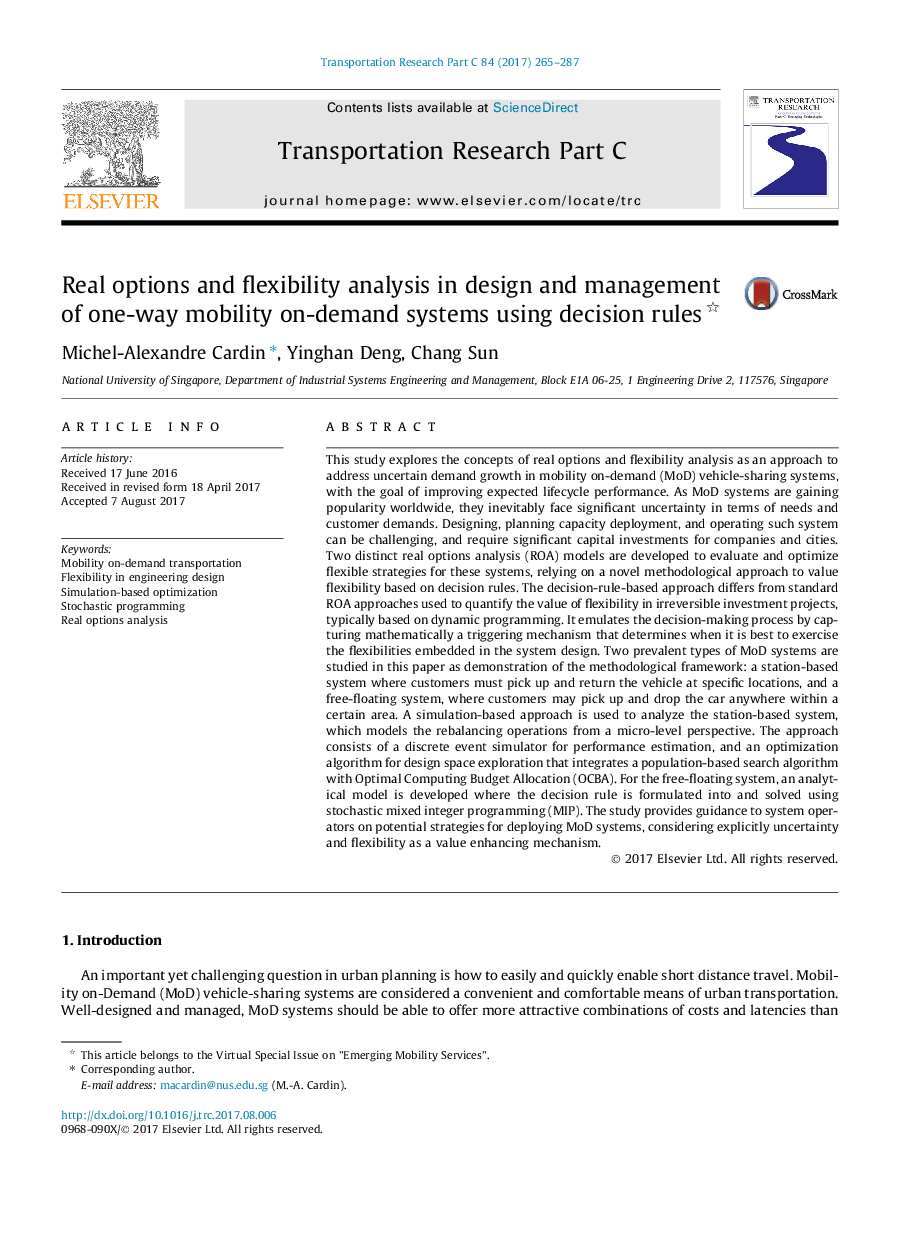| Article ID | Journal | Published Year | Pages | File Type |
|---|---|---|---|---|
| 4968435 | Transportation Research Part C: Emerging Technologies | 2017 | 23 Pages |
Abstract
This study explores the concepts of real options and flexibility analysis as an approach to address uncertain demand growth in mobility on-demand (MoD) vehicle-sharing systems, with the goal of improving expected lifecycle performance. As MoD systems are gaining popularity worldwide, they inevitably face significant uncertainty in terms of needs and customer demands. Designing, planning capacity deployment, and operating such system can be challenging, and require significant capital investments for companies and cities. Two distinct real options analysis (ROA) models are developed to evaluate and optimize flexible strategies for these systems, relying on a novel methodological approach to value flexibility based on decision rules. The decision-rule-based approach differs from standard ROA approaches used to quantify the value of flexibility in irreversible investment projects, typically based on dynamic programming. It emulates the decision-making process by capturing mathematically a triggering mechanism that determines when it is best to exercise the flexibilities embedded in the system design. Two prevalent types of MoD systems are studied in this paper as demonstration of the methodological framework: a station-based system where customers must pick up and return the vehicle at specific locations, and a free-floating system, where customers may pick up and drop the car anywhere within a certain area. A simulation-based approach is used to analyze the station-based system, which models the rebalancing operations from a micro-level perspective. The approach consists of a discrete event simulator for performance estimation, and an optimization algorithm for design space exploration that integrates a population-based search algorithm with Optimal Computing Budget Allocation (OCBA). For the free-floating system, an analytical model is developed where the decision rule is formulated into and solved using stochastic mixed integer programming (MIP). The study provides guidance to system operators on potential strategies for deploying MoD systems, considering explicitly uncertainty and flexibility as a value enhancing mechanism.
Related Topics
Physical Sciences and Engineering
Computer Science
Computer Science Applications
Authors
Michel-Alexandre Cardin, Yinghan Deng, Chang Sun,
